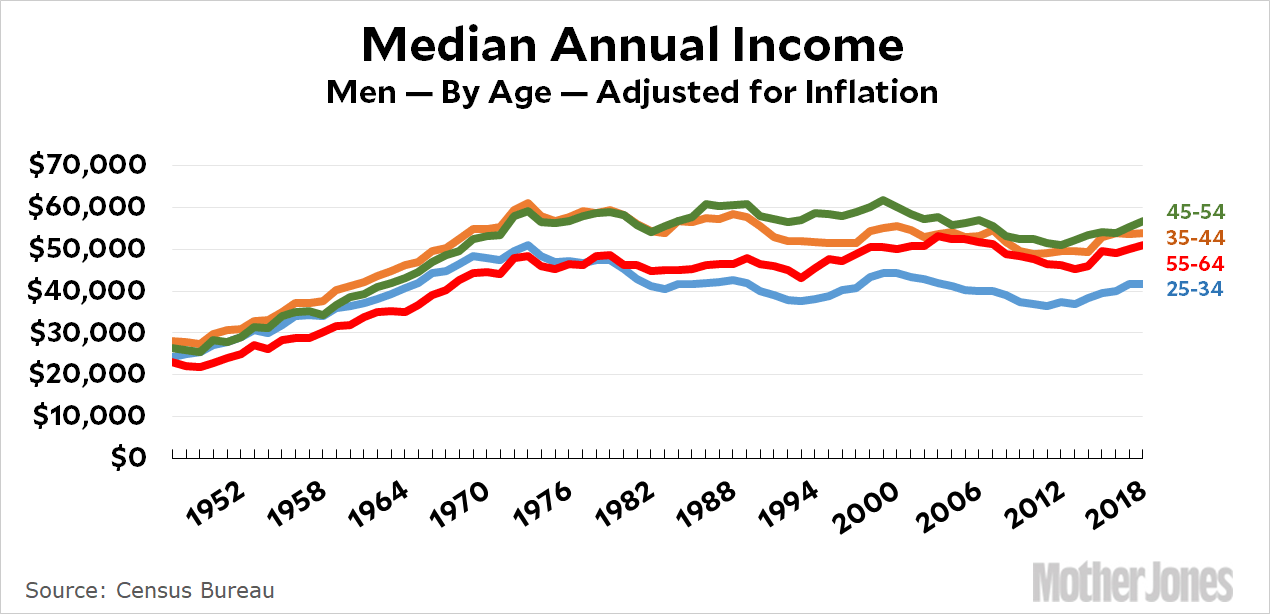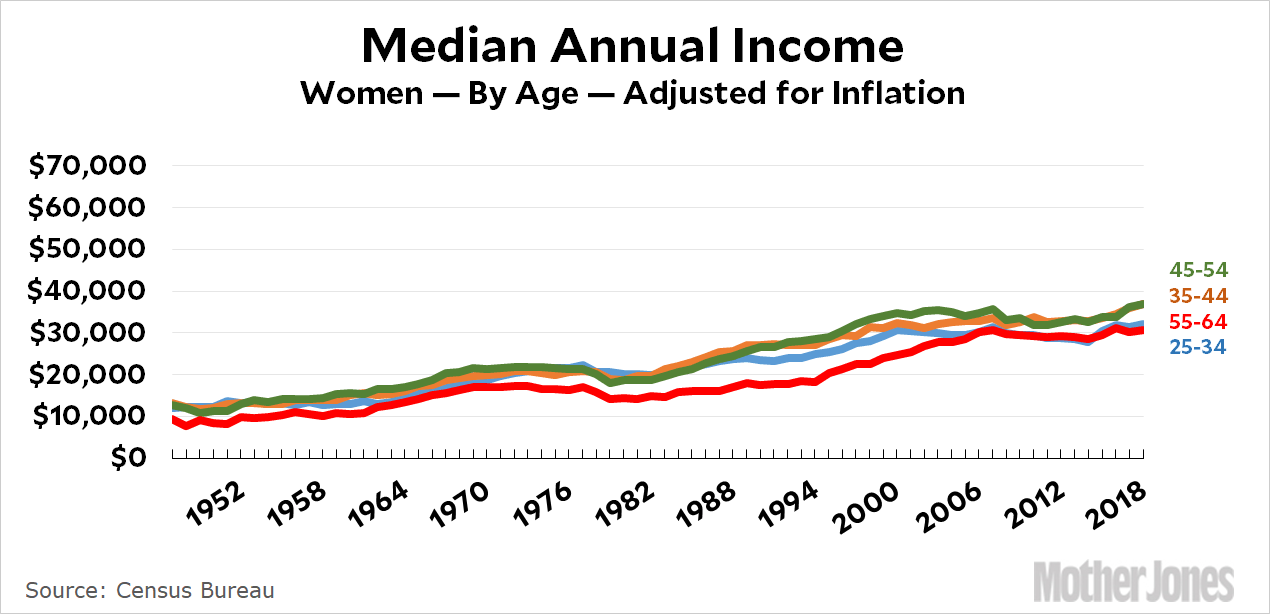For some reason I’ve recently seen a little spate of skepticism over the notion that middle-class incomes have been stagnant for quite a while. I suppose this is a reaction to Bernie Sanders, who certainly has a habit of making things sound a little more catastrophic than they really are. But that’s no reason to doubt the basic fact of income stagnation—at least for some people.
Here are the figures from the Census Bureau for men of different ages:

Since 1980, the income of every men’s age group has declined except for those 55-64—and even that age group has been stagnant since 2000. Now here are women:

Women’s incomes have been rising steadily, though they’re still considerably lower than men’s incomes.
Now, this is cash income and doesn’t include government benefits. And it uses CPI-U-RS as its inflation gauge. You can get different results if you calculate income differently or if you use a different measure of inflation. However, cash income is best if you’re interested in how people view their own financial situation, since most people don’t include benefits when they think about how well they’re doing. And I happen to think that CPI-U-RS is the best inflation measure we have.
So if you want to know how people view their own financial situation, these charts are a pretty good indicator. Middle-class men of prime working age have been on a slow downward slide for 40 years, and an even steeper slide since 2000—though gaining back a bit over the past five or six years. Middle-class women, by contrast, have been gaining steadily but still make way less than men.
In other words, just about everyone has good cause to be frustrated and unhappy. That’s especially true since the affluent have been doing so well during the same period. Frankly, it’s sort of a miracle that people aren’t more pissed off than they are.

















